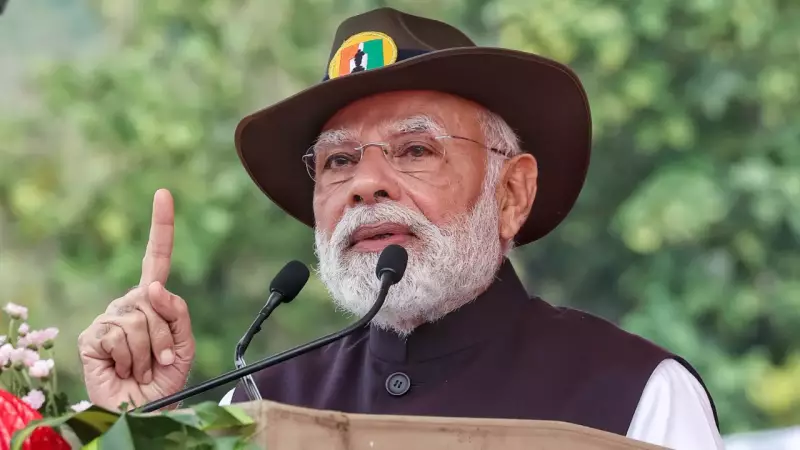
In a dramatic revelation that has sent shockwaves through political circles, Prime Minister Narendra Modi has made startling claims about India's early political history. Speaking at a recent public engagement, the Prime Minister asserted that the nation's first Home Minister, Sardar Vallabhbhai Patel, was systematically prevented from fully integrating Kashmir into the Indian Union.
The Historical Allegation That's Shaking Political Foundations
Prime Minister Modi didn't mince words when he pointed fingers directly at India's first Prime Minister, Jawaharlal Nehru. According to Modi's account, Nehru actively obstructed Sardar Patel's efforts to secure Kashmir's complete accession to India during the critical period following independence.
"Had Sardar Patel been given a free hand, the map of India would look very different today," Modi declared, suggesting that the entire Kashmir issue might have been resolved decades ago under Patel's decisive leadership.
Congress Faces 'Spineless' Accusation
The Prime Minister didn't stop at historical criticism. He launched a scathing attack on the contemporary Congress party, labeling them as "spineless" and accusing them of continuing what he described as Nehru's legacy of weak leadership on national security matters.
Modi's comments come at a time when historical narratives have become central to political discourse. The Bharatiya Janata Party has frequently positioned Sardar Patel as a symbol of strong, decisive leadership, often contrasting him with Nehru in their political messaging.
Political Reactions and Historical Context
Historical experts note that while Patel was indeed instrumental in integrating over 500 princely states into the Indian Union, the Kashmir situation involved complex international dimensions and United Nations involvement that made it particularly challenging.
The Prime Minister's remarks have ignited fresh debate about historical interpretation and its use in contemporary politics. Opposition parties have criticized what they call the "selective celebration" of historical figures for political gains.
As the political temperature rises, this controversy promises to dominate parliamentary discussions and public discourse in the coming days, with both sides preparing to defend their versions of history and their vision for India's future.





